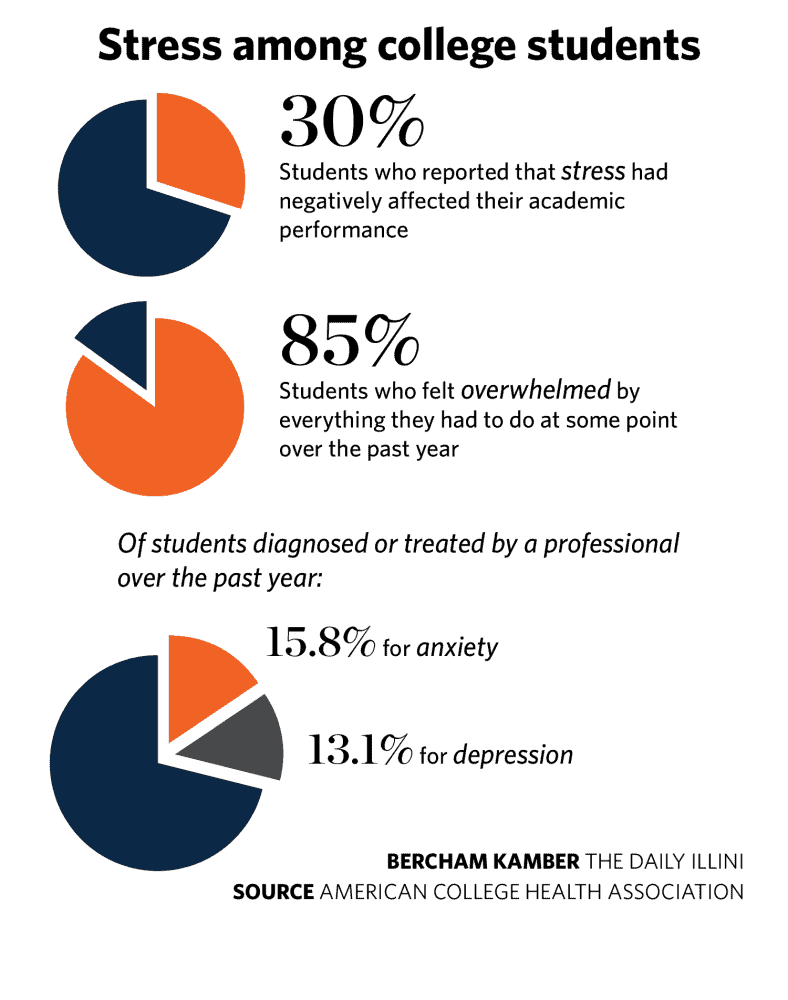Homework is generally given out to ensure that students take time to review and remember the days lessons. It can help improve on a student’s general performance and enhance traits like self-discipline and independent problem solving.
Parents are able to see what their children are doing in school, while also helping teachers determine how well the lesson material is being learned. Homework is quite beneficial when used the right way and can improve student performance.
However…
This well intentioned practice can turn sour if it’s not handled the right way. Studies show that if a student is inundated with too much homework, not only do they get lower scores, but they are more likely to get stressed.
The age at which homework stress is affecting students is getting lower, some even as low as kindergarten. Makes you wonder what could a five year old possibly need to review as homework?
One of the speculated reasons for this stress is that the complexity of what a student is expected to learn is increasing, while the breaks for working out excess energy are reduced. Students are getting significantly more homework than recommended by the education leaders, some even nearly three times more.
To make matters worse, teachers may give homework that is both time consuming and will keep students busy while being totally non-productive.
Remedial work like telling students to copy notes word for word from their text books will do nothing to improve their grades or help them progress. It just adds unnecessary stress.
Explore emotional well-being with BetterHelp – your partner in affordable online therapy. With 30,000+ licensed therapists and plans starting from only $65 per week, BetterHelp makes self-care accessible to all. Complete the questionnaire to match with the right therapist.
Effects of homework stress at home
Both parents and students tend to get stressed out at the beginning of a new school year due to the impending arrival of homework.
Nightly battles centered on finishing assignments are a household routine in houses with students.
Research has found that too much homework can negatively affect children. In creating a lack of balance between play time and time spent doing homework, a child can get headaches, sleep deprivation or even ulcers.
And homework stress doesn’t just impact grade schoolers. College students are also affected, and the stress is affecting their academic performance.

Even the parent’s confidence in their abilities to help their children with homework suffers due increasing stress levels in the household.
Fights and conflict over homework are more likely in families where parents do not have at least a college degree. When the child needs assistance, they have to turn to their older siblings who might already be bombarded with their own homework.
Parents who have a college degree feel more confident in approaching the school and discussing the appropriate amount of school work.
“It seems that homework being assigned discriminates against parents who don’t have college degree, parents who have English as their second language and against parents who are poor.” Said Stephanie Donaldson Pressman, the contributing editor of the study and clinical director of the New England Center for Pediatric Psychology.
With all the stress associated with homework, it’s not surprising that some parents have opted not to let their children do homework. Parents that have instituted a no-homework policy have stated that it has taken a lot of the stress out of their evenings.
The recommended amount homework
The standard endorsed by the National Education Association is called the “10 minute rule”; 10 minutes per grade level per night. This recommendation was made after a number of studies were done on the effects of too much homework on families.
The 10 minute rule basically means 10 minutes of homework in the first grade, 20 minute for the second grade all the way up to 120 minutes for senior year in high school. Note that no homework is endorsed in classes under the first grade.
Parents reported first graders were spending around half an hour on homework each night, and kindergarteners spent 25 minutes a night on assignments according to a study carried out by Brown University.
Making a five year old sit still for half an hour is very difficult as they are at the age where they just want to move around and play.
A child who is exposed to 4-5 hours of homework after school is less likely to find the time to go out and play with their friends, which leads to accumulation of stress energy in the body.
Their social life also suffers because between the time spent at school and doing homework, a child will hardly have the time to pursue hobbies. They may also develop a negative attitude towards learning.
The research highlighted that 56% of students consider homework a primary source of stress.
And if you’re curious how the U.S stacks up against other countries in regards to how much time children spend on homework, it’s pretty high on the list.

Signs to look out for on a student that has homework stress
Since not every student is affected by homework stress in the same way, it’s important to be aware of some of the signs your child might be mentally drained from too much homework.
Here are some common signs of homework stress:
- Sleep disturbances
- Frequent stomachaches and headaches
- Decreased appetite or changed eating habits
- New or recurring fears
- Not able to relax
- Regressing to behavior they had when younger
- Bursts of anger crying or whining
- Becoming withdrawn while others may become clingy
- Drastic changes in academic performance
- Having trouble concentrating or completing homework
- Constantly complains about their ability to do homework
If you’re a parent and notice any of these signs in your child, step in to find out what’s going on and if homework is the source of their stress.
If you’re a student, pay attention if you start experiencing any of these symptoms as a result of your homework load. Don’t be afraid to ask your teacher or parents for help if the stress of homework becomes too much for you.
What parents do wrong when it comes to homework stress
Most parents push their children to do more and be more, without considering the damage being done by this kind of pressure.
Some think that homework brought home is always something the children can deal with on their own. If the child cannot handle their homework then these parents get angry and make the child feel stupid.
This may lead to more arguing and increased dislike of homework in the household. Ultimately the child develops an even worse attitude towards homework.
Another common mistake parents make is never questioning the amount of homework their children get, or how much time they spend on it. It’s easy to just assume whatever the teacher assigned is adequate, but as we mentioned earlier, that’s not always the case.
Be proactive and involved with your child’s homework. If you notice they’re spending hours every night on homework, ask them about it. Just because they don’t complain doesn’t mean there isn’t a problem.
How can parents help?
- While every parent wants their child to become successful and achieve the very best, it’s important to pull back on the mounting pressure and remember that they’re still just kids. They need time out to release their stress and connect with other children.
- Many children may be afraid to admit that they’re overwhelmed by homework because they might be misconstrued as failures. The best thing a parent can do is make home a safe place for children to express themselves freely. You can do this by lending a listening ear and not judging your kids.
- Parents can also take the initiative to let the school know that they’re unhappy with the amount of homework being given. Even if you don’t feel comfortable complaining, you can approach the school through the parent-teacher association available and request your representative to plead your case.
- It may not be all the subjects that are causing your child to get stressed. Parents should find out if there is a specific subject of homework that is causing stress. You could also consult with other parents to see what they can do to fix the situation. It may be the amount or the content that causes stress, so the first step is identifying the problem.
- Work with your child to create a schedule for getting homework done on time. You can set a specific period of time for homework, and schedule time for other activities too. Strike a balance between work and play.
- Understanding that your child is stressed about homework doesn’t mean you have to allow them not to try. Let them sit down and work on it as much as they’re able to, and recruit help from the older siblings or a neighbor if possible.
- Check out these resources to help your child with their homework.
The main idea here is to not abolish homework completely, but to review the amount and quality of homework being given out. Stress, depression and lower grades are the last things parents want for their children.
The schools and parents need to work together to find a solution to this obvious problem.






